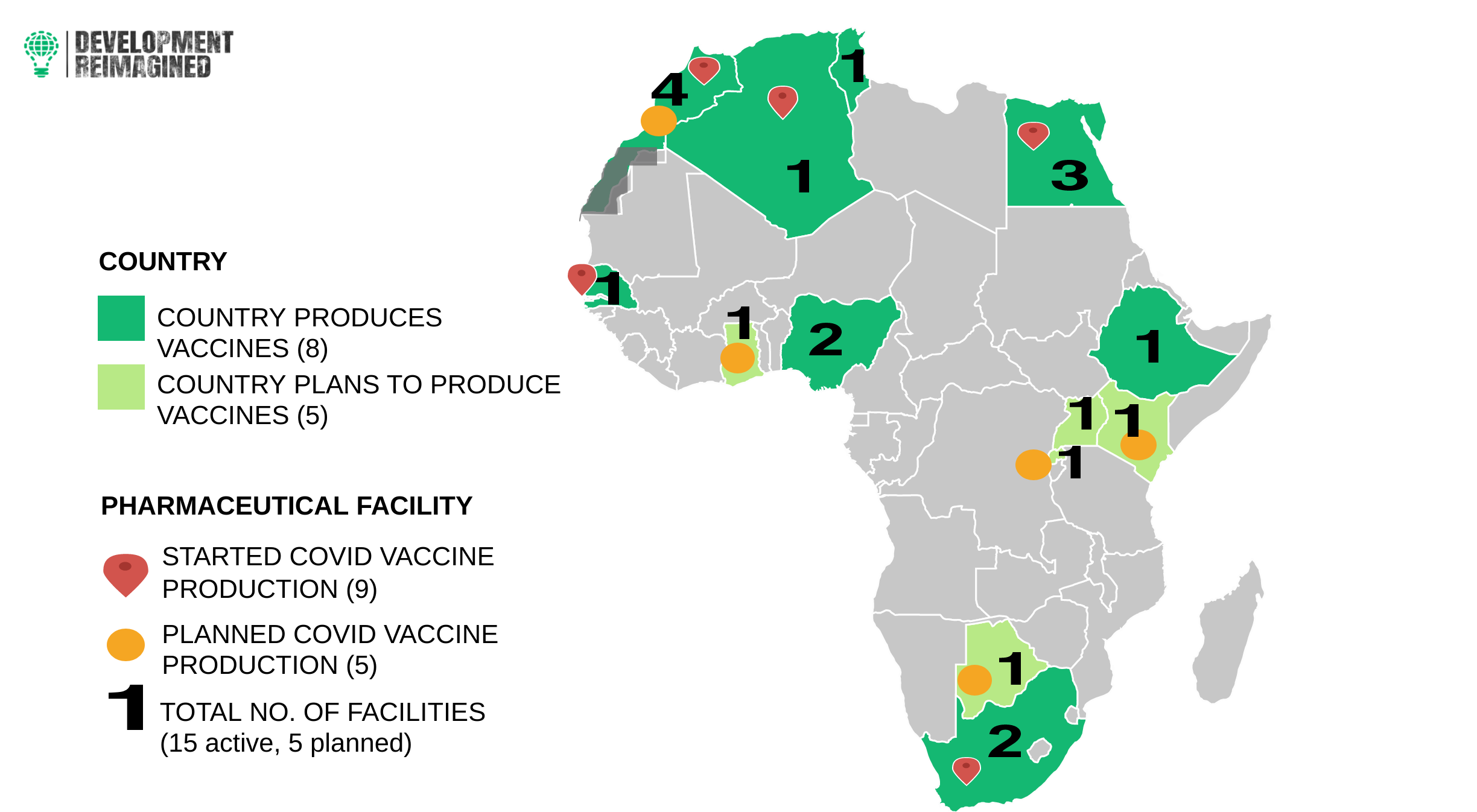As 2022 has drawn to a close, there has been much coverage about China’s challenges with COVID-19 vaccinations as the country eased social distancing restrictions. But completely missing from front pages is the fact that across the Indian Ocean, an entire continent has missed its fairly low-ambition vaccination targets.
Today, just a quarter (25%) of the African population is fully vaccinated, falling short of the African Union’s goal of 60% to be fully vaccinated by 2023, and, as we covered earlier this year, only 3% boosted. Why and how? Does it matter? And what does this mean for 2023, the third year since COVID’s onset?
First, international vaccine distribution has been mostly appalling in 2022. Africa only makes up 704 million (5%) of 13 billion full vaccinations globally, while Africa’s booster uptake has also been lower at only 59.8 million doses (2%) of the global average of 2.6 billion booster doses administered. The vaccination and booster campaigns have stalled due to populations accepting a low-risk global sentiment – especially the mass removal of testing and physical restrictions in travel and public spaces across most of the world. In this “each to their own” environment: Africa’s collective instrument to procure vaccines, the (AVAT) has been active but not fared well, accounting for just 10% of vaccines delivered to the continent, while bilateral inflows are slow at just over 25% – compared to COVAX, accounting for over 60%; which is funded by donors but rife with problems of crowding out local production.
Second, potential breakthroughs in local vaccine manufacturing and development, such as the Aspen Pharmacare facility producing Johnson and Johnson’s COVID vaccine in South Africa – and other facilities such as in Morocco and Egypt – have faced procurement challenges and taken much time to set up, and have also been slowed by IP issues with existing formulas restricted, due to the US’ refusal at the WTO to waive IP protection for COVID test and treatments.
So what do we expect in 2023?
While the above might imply doom and gloom for 2023, our global health team at Development Reimagined are more optimistic, for four key reasons.
First, there are presently fifteen (15) facilities capable of vaccine manufacturing across eight (8) African countries, nine (9) of which are making COVID vaccines, including the Afrigen Biologics and Vaccines facility in South Africa, making strides in the manufacturing of an mRNA vaccine candidate for COVID. Five more facilities are in the planning stages in five additional countries (Ghana, Rwanda, Uganda, Kenya, and Botswana) to add to these ranks. While we have not yet been able to assess their complete capacity or existing manufacturing volumes now, this is something we will be focusing on in 2023.
Second, the US has been consulting internally on its WTO position, and the US also announced at the US-Africa Summit in Washington on December 15th, that it was looking into supporting African countries on local vaccine production in the future. This means hope for a deal that aims to ease patent rights for vaccines as well as antiviral therapeutics – like Pfizer’s Paxlovid, Merck’s Molnupiravir, Gilead Sciences’ Remdesivir and Eli Lilly’s Baricitinib – will be on the table in 2023.
Third, China is opening up and has yet to meet its FOCAC goal for donating 600m vaccines and locally manufacturing 400m on the continent, with our research showing an increment in donations from China post-FOCAC in 2022. It is worth noting that at the time of writing (27th December 2022), no African country has imposed travel or testing restrictions on travellers from China. So we can expect an uptick in Chinese-branded vaccines on the continent, and more collaboration. One area we would recommend collaboration is on the possible effects of long COVID – a chronic illness stemming from an acute COVID-19 infection, which has been hardly studied in African countries. In particular, long COVID negatively impacts clinical and public health systems as patients often need extended care, weighing on already limited health resources. Thus, it is essential that African governments continue to closely track and monitor cases of long COVID, increase research into its effects and work to mitigate its impact moving forward into 2023.
Fourth, it has been agreed that GAVI’s COVAX vaccine facility, will be phased out over the next two years. While COVAX claims to have sufficient supplies to maintain coverage into 2024, this hastens the need and creates more space for Africa’s self-sufficiency for vaccines and medicine manufacturing. To bolster this, our hope is that African governments will push harder in 2023 for all global procurement agencies such as GAVI, UNICEF and others to include local manufacturing targets, such as the African position agreed by Heads of State in 2022 for at least 30 per cent of all vaccines from Africa to be used in their sourcing.
Overall, in many ways, 2022 was hardly progressive, except on the local manufacturing progress. In 2023, we need to return to Africa’s 2020 – 2021 strategies. Africa has fared better than the early pandemic models assumed; through a combination of local expertise, and strong negotiation when it came to international cooperation. The current international order leaves Africa behind – African governments must work to change this, as well as secure our own capacity. That is the only way African countries will achieve better health sovereignty in 2023 than in 2022.

This data was collated and analysed from several sources, such as the Africa CDC outbreak updates, the WHO Global Trends (including its Health Emergency Dashboard), UNICEF databases, as well as multiple government and media releases.
Special thanks go to Osaru Omosigho, Rugare Mukanganga, Sena Voncujovi and Jiaying Xu for their work on the graphics, collating/analysing the underlying data and the preparation of this accompanying article, published in both English and Chinese.
If you spot any gaps or have any enquiries, please send your feedback to us at interns@developmentreimagined.com, we will aim to respond ASAP!
January 2023


